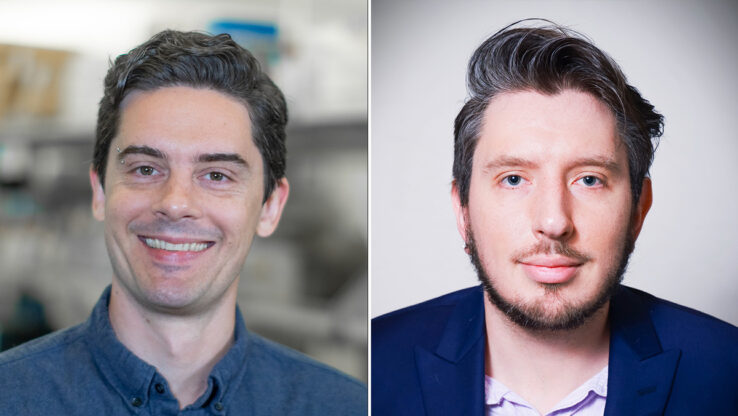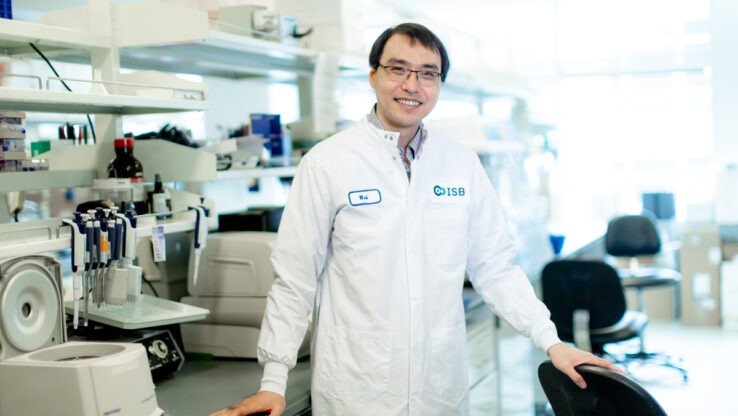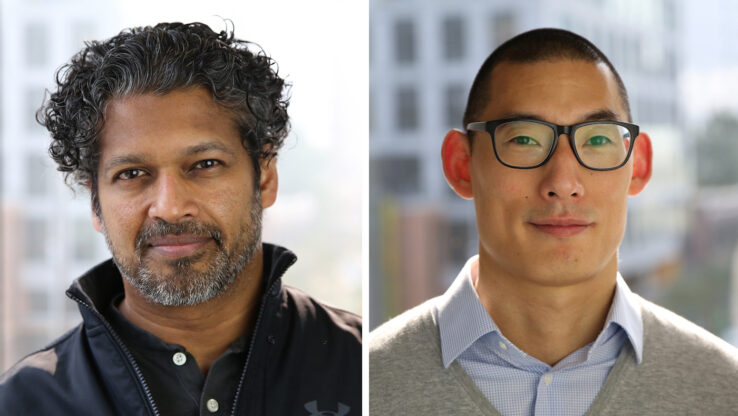‘A Life Like No Other:’ Remembering Beloved ISB Professor Ilya Shmulevich
 isbscience.org/news/2024/06/05/a-life-like-no-other-remembering-beloved-isb-professor-ilya-shmulevich/
isbscience.org/news/2024/06/05/a-life-like-no-other-remembering-beloved-isb-professor-ilya-shmulevich/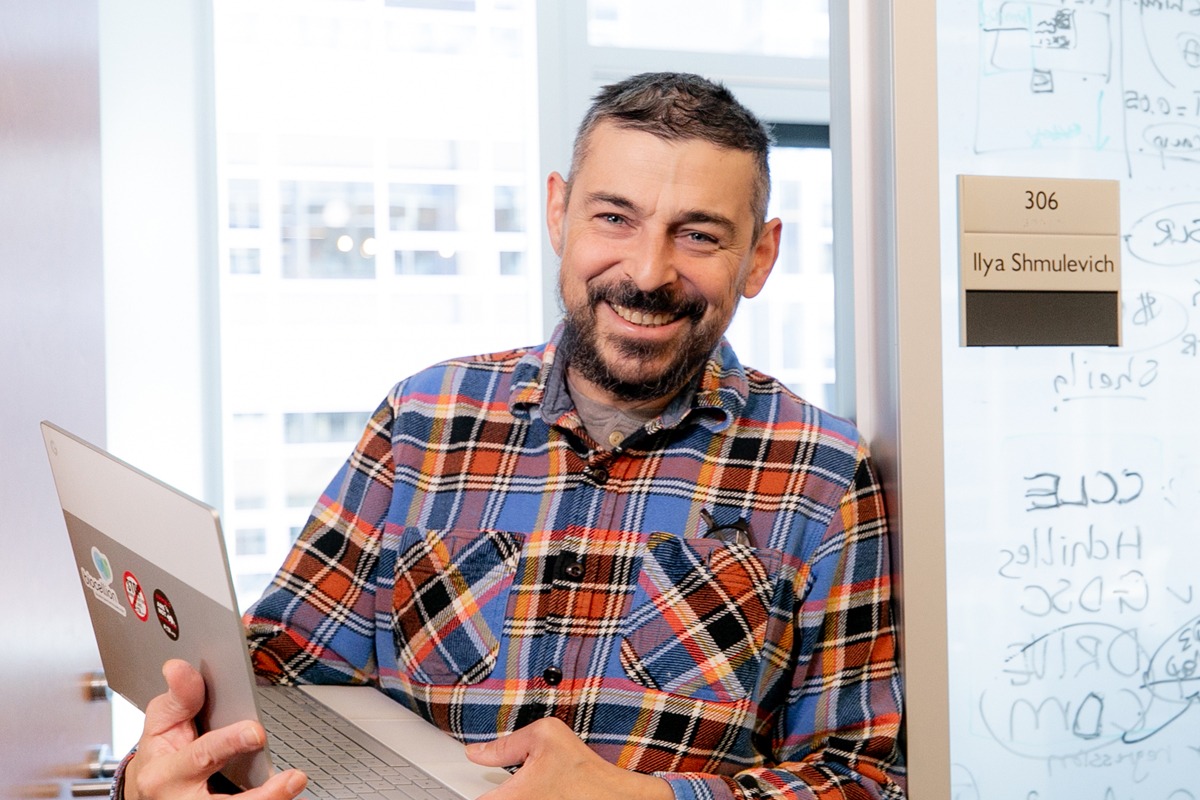
Dr. Ilya Shmulevich in front of his office door at ISB in November 2023. (Scott Eklund/Red Box Pictures)
Devoted husband and father. Animal lover. Accomplished pianist. Avid cyclist. Compassionate human. Exceptional scientist.
The ISB community mourns the loss of Professor Ilya Shmulevich, PhD, who died on April 13, 2024, from complications from acute myeloid leukemia. He was 54 years old.
“Ilya’s impact on his lab, fellow faculty, ISB as a whole, and all who had the pleasure of knowing him cannot be adequately expressed. Ilya was an outstanding scientist, mentor, colleague, collaborator, and friend. Our condolences go out to his family, friends, and loved ones,” said ISB President Dr. Jim Heath.
“Ilya was a superb scientist and an even better person,” said Dr. Lee Hood, who attracted Shmulevich to ISB in 2005. Hood, who co-founded ISB in 2000 and served as its first president through 2018, recalled traveling to the M.D. Anderson Cancer Center in Houston to recruit Shmulevich, who was recommended as a spectacular researcher in data analysis and computation. After spending the day together and wide-ranging conversations about science and people, “it was clear how exceptional he was,” Hood said. “He led a life like no other, and we will never forget him.”
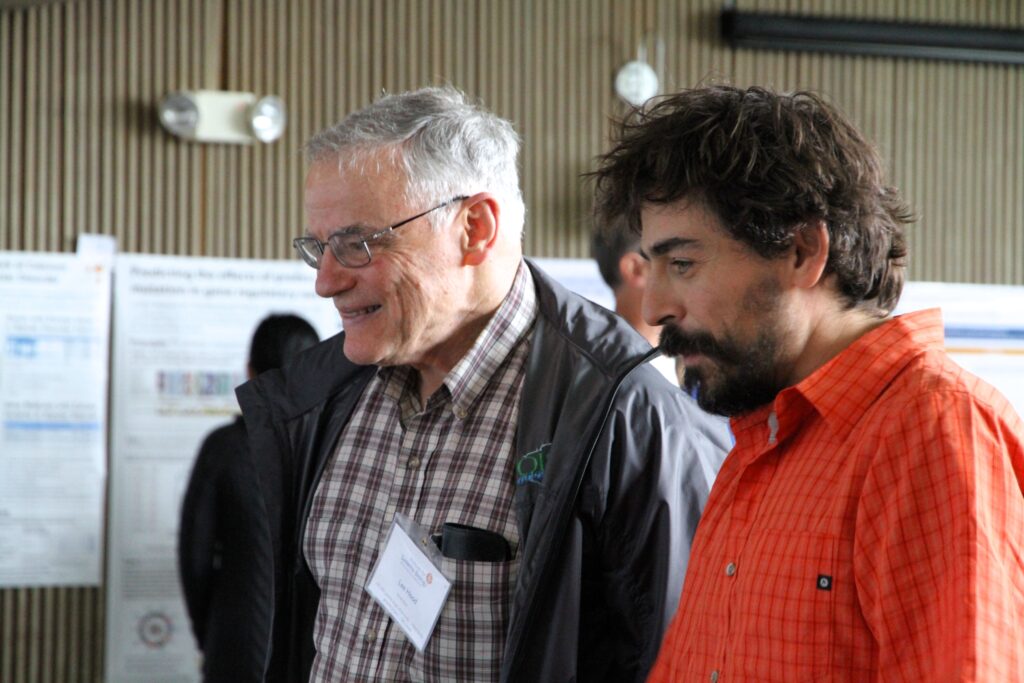
Dr. Ilya Shmulevich with Dr. Lee Hood at an all-staff ISB retreat in 2013. (ISB photo)
Shmulevich received his PhD in Electrical and Computer Engineering from Purdue University. His graduate research focused on nonlinear signal processing, specifically the theory and design of nonlinear digital filters, Boolean algebra, lattice theory, and applications to music pattern recognition.
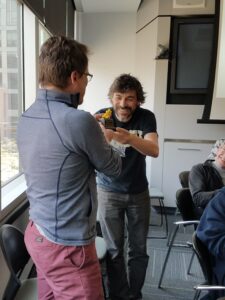
In 2018, Dr. Ilya Shmulevich presented Dr. Vésteinn Thorsson with a 3D-printed protein trophy to honor him as chair of the Immune Response Working Group as part of the Cell Press Pan-Cancer Atlas launch. (ISB photo)
“Ilya was fearless about tackling problems, wasn’t worried about failing, and was independent and adventurous,” said Dr. Edward Coyle, Shmulevich’s PhD advisor at Purdue. “He was willing to pursue new areas and he recognized you can combine things. This multidimensional, multidisciplinary combination catalyzed his career and his impact on science.”
From 1997-1998, following Purdue, Shmulevich was a postdoctoral researcher at the Nijmegen Institute for Cognition and Information at the University of Nijmegen (now known as Radboud University) and the National Research Institute for Mathematics and Computer Science at the University of Amsterdam in The Netherlands. As a postdoc, he studied computational models of music perception and recognition, focusing on tonality induction and rhythm complexity.
In 1998, he joined the Tampere International Center for Signal Processing in Finland, where he researched nonlinear systems, image recognition and classification, image correspondence, computational learning theory, multiscale and spectral methods, and statistical signal processing – pivotal areas in computational biology given the emergence of genomic technologies that produced large amounts of data.
In 2001, Shmulevich became an assistant professor in the Department of Pathology at M.D. Anderson Cancer Center, where he helped develop statistical approaches for cancer classification, diagnosis, and prognosis, applying them in his study of metastasis, cancer progression, and tumor heterogeneity for many different types of cancer. Shmulevich co-developed the model class of probabilistic Boolean networks, which has been applied to studying gene regulatory networks in cancer.

ISB’s Dr. Ilya Shmulevich describes his lab’s work in The Cancer Genome Atlas. (ISB photo)
Shmulevich joined ISB in 2005 as an associate professor and was named full professor in 2009. His profound contributions include directing a Genome Data Analysis Center within The Cancer Genome Atlas (TCGA) consortium and directing one of the three NCI Cancer Genomics Cloud Pilots, which now operates as an NCI Cancer Genomics Cloud resource.
“Ilya operated with a guiding principle of scientific collaboration and openness and was a pivotal figure on major national and international projects,” Heath said. “He had tremendous influence in leading projects designed to provide access and comprehension to very large molecular data sets critical for cancer research. His contributions benefitted both the broader research community and cancer patients.”
More recently, Shmulevich pioneered using digital twins for predictive oncology and saw digital twin technology as a paradigm shift in precision cancer care.
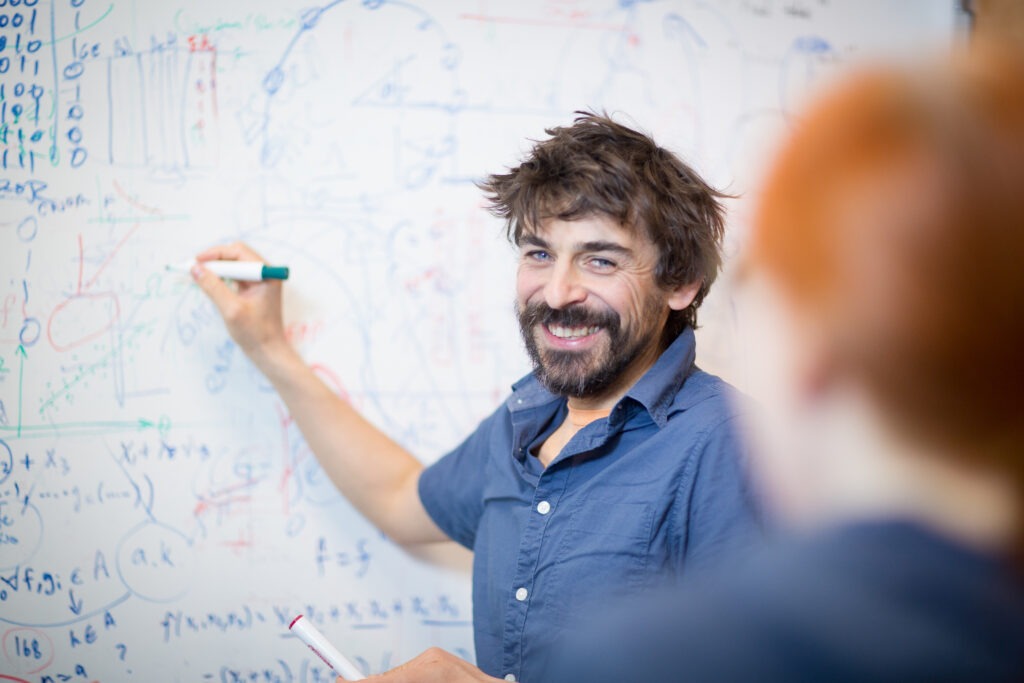
Dr. Ilya Shmulevich at his white board, a place he routinely used to share ideas and collaborate with colleagues. (Scott Eklund/Red Box Pictures)
Shmulevich has published hundreds of peer-reviewed scientific papers that have been cited more than 87,000 times. He has also co-authored or co-edited several books on computational biology. He held affiliate professor appointments at the University of Washington, Tampere University of Technology, and Strathclyde University.
His scientific clout is unquestionable, but Shmulevich will always be remembered for much more.

Dr. Ilya Shmulevich shared his piano mastery at a performance for the 2014 ISB All-Staff Retreat. (ISB photo)
Dr. Nyasha Chambwe, a former postdoc and research scientist in the Shmulevich Lab, said: “I ask myself what I learned from Ilya that I have taken and hope to keep going forward to perpetuate his scientific legacy. First, maintain a pure, almost childlike enthusiasm for science and the pursuit of new knowledge. Second, be a radically empathetic and generous mentor. And third, any scientific discussion or career advice session requires good coffee and dark, salty chocolate made from ethically sourced cacao beans.”
ISB Associate Professor Dr. Naeha Subramanian, a close colleague and friend, recounted Shmulevich’s spirituality, love for animals and nature, playful approach to life, soulful melodies, lighting up faculty meetings simply with his presence, and interacting with every person in the present moment. “Even when his body was ailing, his spirit soared,” Subramanian said.
“When Ilya spoke to anyone, he did so with respect, attentiveness, and engagement,” said ISB Principal Scientist Dr. Vésteinn Thorsson, a longtime friend and collaborator. “From him, I learned to be present in what you do, see the beauty and goodness in everything, and know now is what matters most.”
Friends, family, colleagues, and collaborators of Ilya Shmulevich can share memories and tributes here.



